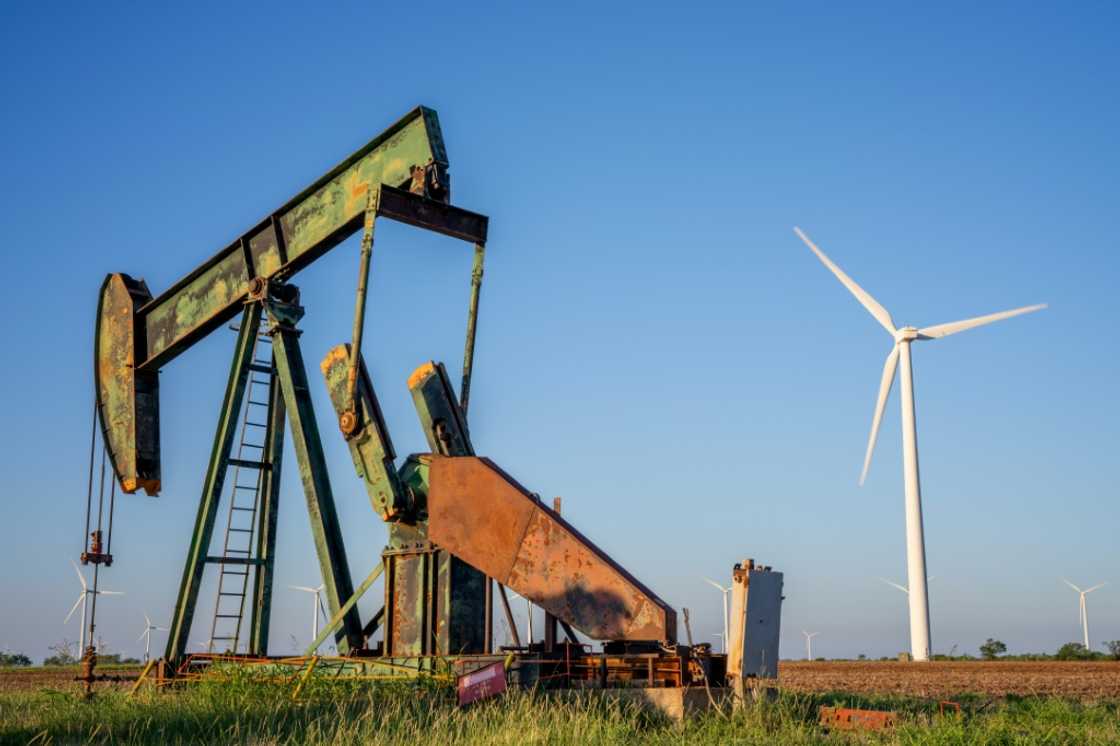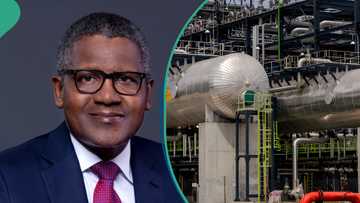Oil giants TotalEnergies, Equinor reduce low-carbon investments

Source: AFP
CHECK OUT: Education is Your Right! Don’t Let Social Norms Hold You Back. Learn Online with LEGIT. Enroll Now!
French oil and gas giant TotalEnergies said Wednesday it would reduce its low-carbon energy investments while Norwegian peer Equinor scaled back its renewables ambitions as the companies reported sharp drops in annual profits.
Major fossil fuel companies have seen their profits fall as crude prices have dropped over demand concerns after soaring in the wake of Russia's invasion of Ukraine in 2022.
Despite pressure from climate campaigners for the industry to phase out fossil fuels, companies are reducing investment in renewables and boosting their more profitable oil and gas output.
TotalEnergies said Wednesday it would reduce its investments in low-carbon energy, mainly for electricity, by $500 million -- from $5 billion to $4.5 billion.
The French oil and gas major reported a net profit of $15.8 billion for 2024 -- still sizeable but 26 percent lower than in the previous year. It was around $1 billion less than forecast by analysts surveyed by Bloomberg and financial data firm FactSet.
This followed two years of record profits, which reached $21.4 billion in 2023.
"The oil and gas landscape was less favourable (in 2024)," TotalEnergies chief executive Patrick Poyanne told reporters.
"In the end, it will still be the third highest results in (company) history," he added.
Equinor said its net profit fell by a quarter to $8.8 billion in 2024.
The Norwegian company said it now planned a renewable capacity of between 10 and 12 gigawatts in 2030, down from a previous forecast of 12 to 16 GW.
It added that its ambition to allocate 50 percent of capital investment to renewable and low-carbon projects "is retired".
Emissions from fossil fuels keep rising despite a global pledge to move the world away from coal, oil and gas.
Under the Paris accord on climate change, the world agreed to try and keep warming to this safer 1.5C threshold.
'Colossal profits'
Equinor also announced plans to increase oil and gas production by more than 10 percent between 2024 and 2027. It increased its expected production for 2030 from two million barrels per day to 2.2 million.
"We are taking strong measures to adapt to the market as we see it," chief executive Anders Opedal told Norwegian newspaper Dagens Naeringsliv.
"It's the market that is changing. My job is to create value for shareholders in a constantly evolving market," he said.
Climate campaigners slammed the company's announcement.
"Equinor continues to rake in colossal profits by accelerating climate change, which causes more extreme weather events, ice melting, and human deaths," said Frode Pleym, head of Greenpeace Norway.
"When more than 99 percent of its energy production remains fossil-based and the company further reduces its renewable ambitions, it is impossible to take its ecological commitments seriously," he said.
The NGO urged the Norwegian government, which olds a 67-percent stake in Equinor, to respond to the company's decision to scale back renewables plans.
Oil output debate
Equinor and TotalEnergies are not alone.
British oil majors BP and Shell have also scaled back various climate objectives to focus more on oil and gas in order to raise profits, drawing criticism from environmental activists.
Italy's Enel cut its renewable energy ambitions by around five billion euros for the 2024-2026 period in a new strategic plan published in 2023.
US majors ExxonMobil and Chevron remain focused on oil and gas production.
The outlook for global oil production varies.
The International Energy Agency, which advises developed countries, sees oil production peaking by the end of the decade.
The Saudi-led OPEC oil cartel expects output to continue growing until at least 2050.
PAY ATTENTION: Сheck out news that is picked exactly for YOU ➡️ find the “Recommended for you” block on the home page and enjoy!
Source: AFP





